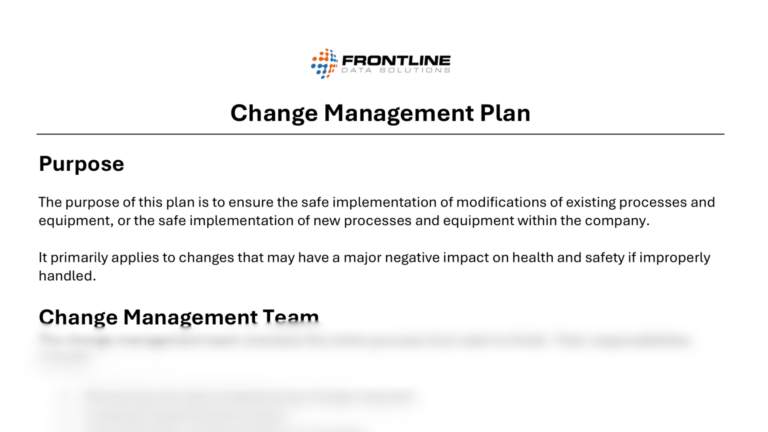The variables that impact business outcomes are constantly shifting. So, it’s no wonder why change management is so important for maintaining high levels of performance.
It provides the framework for coordinating operational changes in the most efficient and effective way possible. Consquently, without change management, achieving performance standards in areas like quality, safety, and productivity would be much more difficult.
Free template!
Download this free change management plan template to outline your approach to coordinating changes onsite.
Avoid costly mistakes
There are many costly downsides of rushing operational changes, including (but not limited to):
- Product quality defects
- Production slowdowns or stoppages
- Equipment malfunctions
- Product recalls
- PR or communication blunders
- Product or service rework
Change management helps companies avoid these costly mistakes by requiring a series of checks at each step in the implementation process. Specifically, this creates natural pauses in the process, allowing teams enough time to consider the effects of their work. Not only can this reduce errors, but it can also help companies pivot away from projects with as minimal impact to the business as possible.
Become more adaptable
One common misconception about change management is that it creates more red tape, that it slows down change. In reality, this process can help companies become more adaptable. That’s because it takes away the chaos of coordinating and documenting changes.
With a dedicated management of change approach, you can:
- Anticipate and address issues before they impact the business
- Ensure the safety and effectiveness of new changes
- Coordinate implementation tasks more efficiently
- Adjust your plan without sacrificing quality, safety, or productivity
- Fully consider the impact of proposed changes
- Maintain visibility over the implementation process from start to finish
Focus on the important change management essentials
The first step in the change management process involves either approving or denying change requests. This simple step ensures that companies only work on those changes that are critical to performance.
Having criteria to choose which changes are the most valuable to performance is essential for growing as an organization. Moreover, establishing these criteria ahead of time means your team can approve or deny requests faster. This means quicker turnaround and ultimately allows the team to tackle more projects each quarter.
Although change management can feel like just another barrier to action, it’s specifically designed to prevent companies from wasting resources farther down the line. The reason why change management is so important is that it helps teams anticipate, mitigate, and eliminate operational risks. This preventative approach is the key to excellence in any area of performance, regardless of industry.





